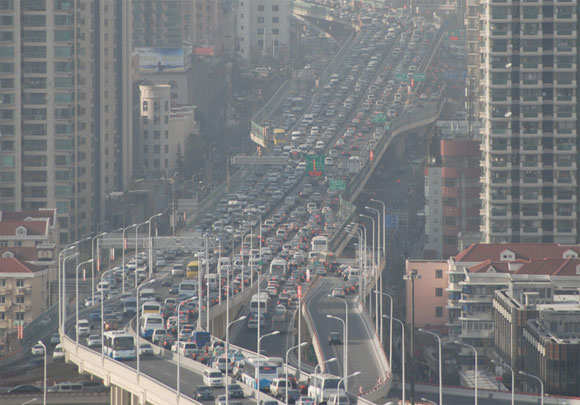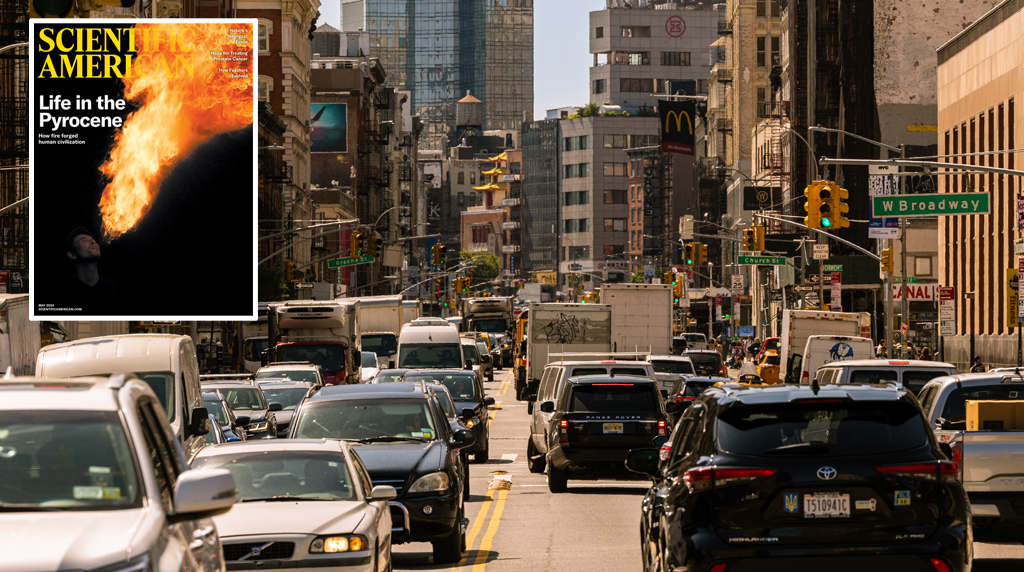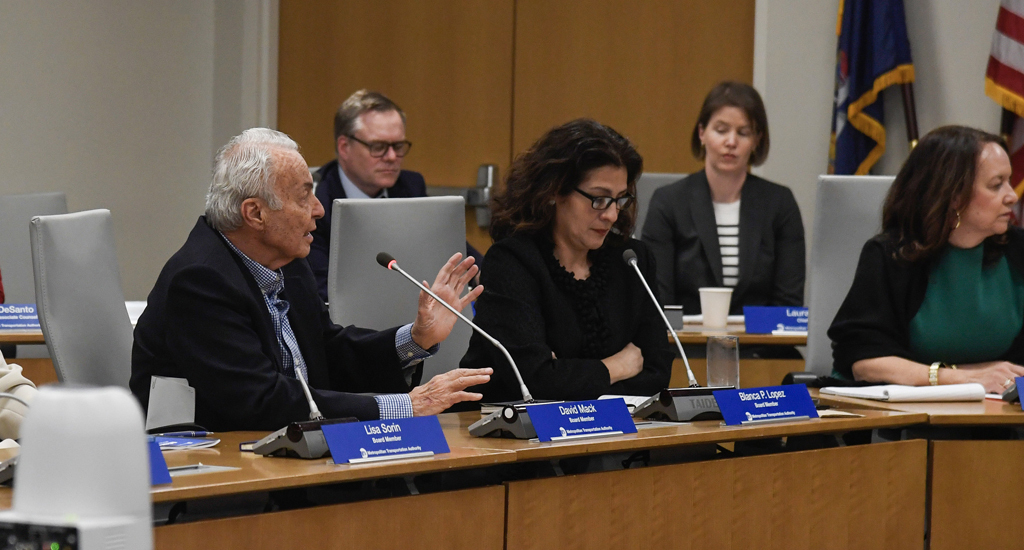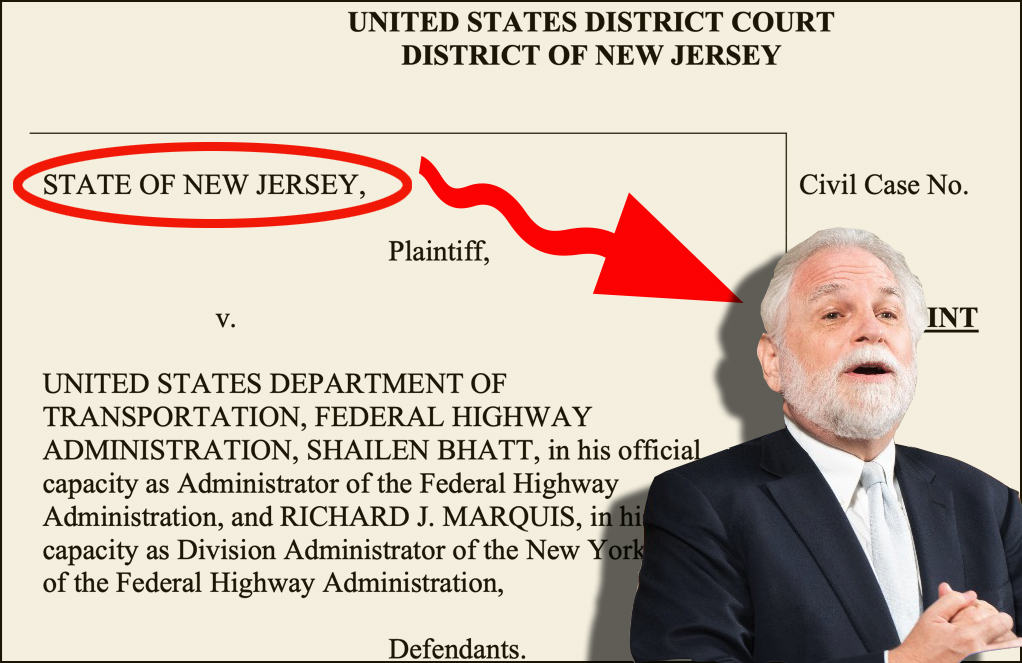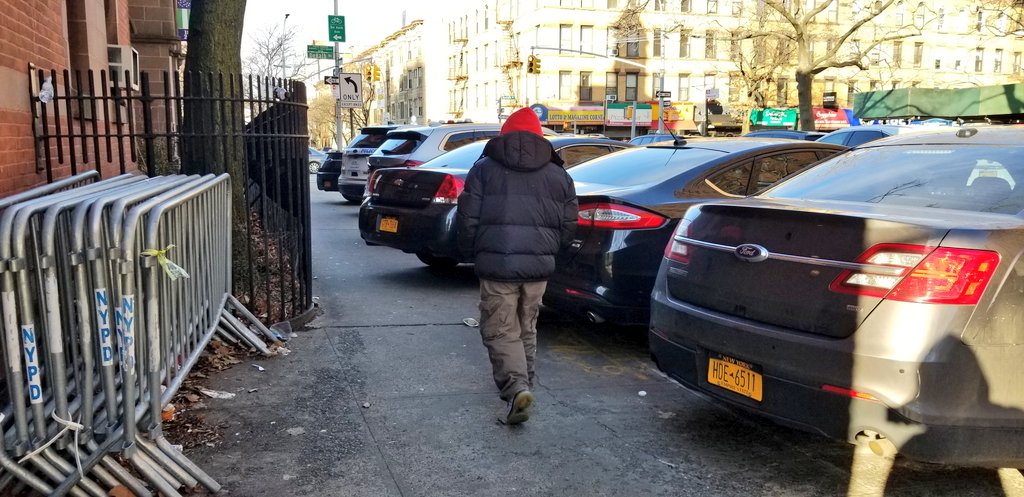Which Chinese city will be the first to try congestion pricing? Beijing, Guangzhou, Shanghai — megacities whose populations are on the scale of New York’s? Or second-tier but still mighty cities (think Chicago) like Hangzhou, Nanjing, or Xi’an?
Road tolling à la American turnpikes and thruways is already extensive in China, as a means to finance highways rather than manage traffic. Increasingly, however, with traffic and vehicle exhaust demonstrably harming business as well as human health in dozens of cities, and with strategies like quotas on new vehicles unable to offset the growth in driving, officials are looking to “economic measures.” Tolling vehicle entries to congested city centers has established a strong enough track record elsewhere in improving traffic flow and air quality that it is attracting interest not just from municipal officials but also from China’s national transport and environment ministries.
Cordon or congestion pricing, as such tolling is called, was Topic "A" last week in Hangzhou, a city of nearly 4 million (6 million counting suburbs) south of Shanghai. Some 200 officials and academics from 11 provinces, 30 cities, and at least a dozen universities packed a two-day “International Forum on Economic Policies for Traffic Congestion and Tailpipe Emissions” organized by the Energy Foundation China. Representatives from the four largest world cities with cordon tolling -- Singapore, London, Stockholm and Milan -- related their successes and fielded questions on everything from the digital nuts and bolts of tolling technologies to the political path that led to implementation. I was invited to report on NYC’s mixed record and share analytical insights from my traffic modeling work.
I’m still sifting impressions, but here are some takeaways thus far:
- The biggest driver of China’s interest in congestion pricing is air pollution, with gridlock, which is spreading to more hours and more areas in every city, a close second. “Congestion and ‘smogs’ have become major concerns of the public and major bottlenecks for urban development,” summed up one high-ranking official.
- Revenue generation for public transport -- a huge motivator for tolling vehicle trips into the Manhattan Central Business District -- is downplayed as a rationale for congestion pricing, perhaps because Chinese drivers already pay road tolls. Revenue may become politically salient, however, as dwindling revenues from sales of land force municipalities to come up with other ways to finance transit lines.
- The economist’s paradigm of “congestion causation” (the aggregate delay to other road users caused by each additional car trip to the CBD) has barely surfaced in transportation planning and the design of road pricing instruments in China, yet it seems an important metric for screening candidate cities for congestion pricing.
- Ditto for each additional trip’s “emissions causation.” At the forum, at least one environmental official had a “Eureka!” moment when it was explained that vehicles touted as “low-emission” might not be, if their use slows down enough other vehicles to raise their per-mile emissions across a large area.
- Bicycles, having literally been pushed aside in the rush to motorization, are now at least receiving lip service. A number of Chinese speakers extolled urban cycling’s spatial economy, physical activity, and “last mile” problem-solving, and much was made of the massive scale of Hangzhou’s bike-share system: 2,700 stations with nearly 70,000 bikes -- an order of magnitude larger than New York City’s.
The discussion was grounded in the experiences of Europe and Singapore. What especially resonated with the Chinese delegates was London’s provision of many new bus lines before the toll scheme was rolled out; Stockholm’s referendum win after congestion pricing had been proven on a trial basis; Milan’s transition from a pollution-based to a congestion-based charge, as vehicle turnover moved the mix from old, polluting tailpipes to cleaner ones, and traffic efficiency began to have equal priority with air quality; and Singapore’s “dynamic” pricing adjusting the toll level to the gridlock level. If there was one strong single lesson, it was that both the political sell and the toll design must be geared to each city’s circumstances.
What’s next?
For China, there are stirrings that congestion pricing may get a serious hearing at the National People’s Congress in March, 2014, possibly leading to designation of one or more cities for pilot projects. For New York City, there’s the Move NY/Sam Schwartz plan to overhaul the city’s tolling system and charge vehicle entries to the Manhattan CBD while reducing rates on the seven MTA bridges that don’t funnel traffic into the urban core.
Given NYC’s iconic status in the world, it would be potentially game-changing on a global scale to be able to showcase New York in China as a leader in “economic policies for traffic congestion and tailpipe emissions.”
Copies of visuals by Komanoff and other non-Chinese presenters will be posted soon at http://www.efchina.org.
